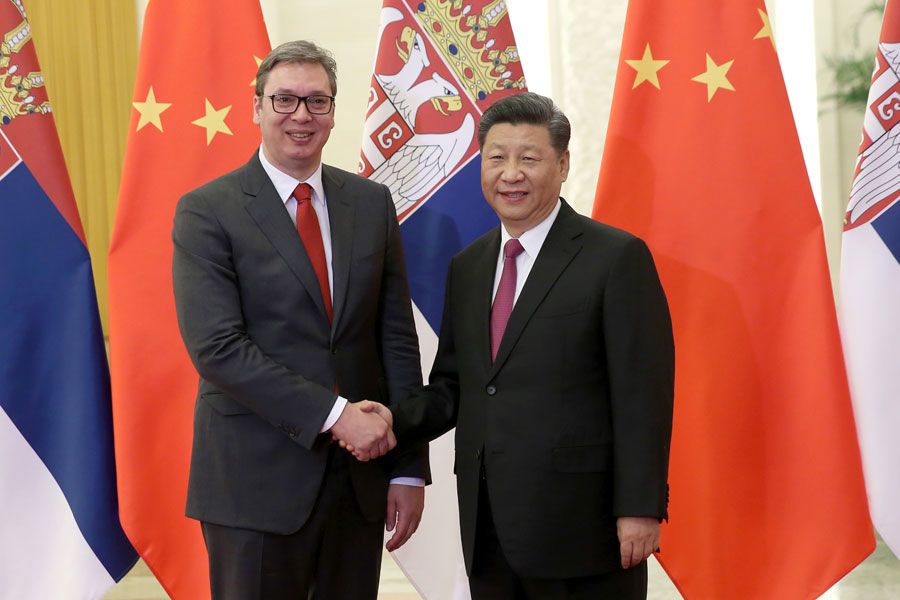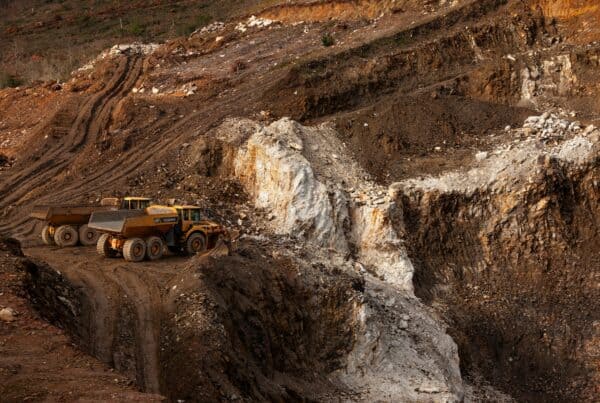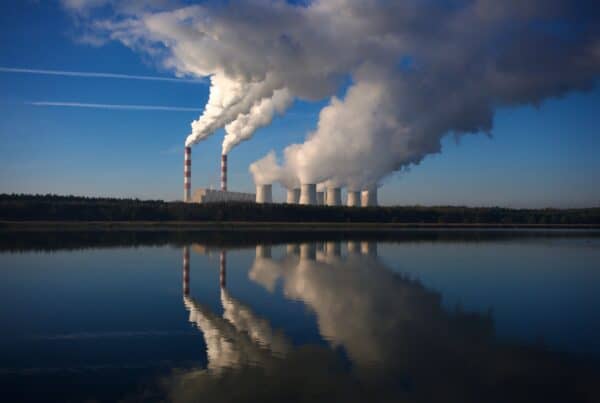Since China’s entry into the world market in the late 1970s and early 1980s as a result of Deng Xiaoping’s de facto rule, for which he was known as the “Architect of Modern China,” China has succeeded in developing a successful and comprehensive foreign strategy. Which has made the Balkans a target because of the limited resources they have been able to gather, as well as the multipolar societies that have alienated the countries from the rest of Europe, particularly those that have not been able to meet the requirements to join the EU, leaving them in desperate need of allies and trade agreements.
Chinese influence on the Balkans has grown throughout time, affecting both the civil society and culture of the countries. Particularly in the institutions of culture, journalism, education, and politics, these have gained ground. is an endeavor to make the countries of the Balkans dependent on China.
Kosovo, Montenegro, Albania, Serbia, Bosnia & Herzegovina, and North Macedonia’s geopolitical unpredictability have led China to discover a motivation to dedicate money to these particular regions. Due to the fact that they cannot strengthen their alliances through shared institutions and markets, their chances of joining the EU have become much less likely.
Diplomatic discussion with the Elite, state institutions, and regional structures is the result that China prefers. In an effort to stop more Sino-Balkan integration, the West has only grown more determined to combat this via soft power from the EU and NATO.
The conflict in Ukraine has only made things worse. As evidenced by the “French Proposal,” which sees the EU aiming to integrate North Macedonia into the EU by mediating their dispute with Bulgaria, Western power is attempting to integrate these countries into the EU and NATO. Nevertheless, Serbia has made an effort to maintain political neutrality in the face of the current circumstances, which has caused the region’s status quo to stay the same. Overall, this could lead to a trade conflict between China and the EU over control of the region.

China’s influence in Albania – A Downwards Spiral of Albania-Sino Relations
Albania and China have one of the oldest and most established diplomatic contacts, which is still evident today. Since they shared Nikita Khrushchev, the then-leader of the Soviet Union, as their common enemy, their agreements began to look more evident in the 1950s. Up until 1969, it appeared that the two nation-states’ relations were improving due to their shared enemy. when China started to widen its market.
By 1979, Albania had cut all ties to China in trade, culture, and technology as a result of its decentralization from China. They later diplomatically and culturally assimilated themselves into the Western powers.
All of these factors have returned to multipolarity since the turn of the twenty-first century, with the West and China competing for influence in Albania. Since June 2014, Albania has been a candidate for membership in the EU. At the time of writing, its pro-EU government is attempting to persuade North Macedonia to ratify the “French Proposal” so that discussions can start.
As a result, China has lobbied opposition parties at the municipal and national levels to lessen their chances of joining the EU, which has grown increasingly antagonistic over time. Major opposition parties dispatched a delegation to China in March 2015 for the “China-CEEC Young Political Leaders Forum,” which is when this was evident. With the ’17+1′ forum held in Tirana at the mayoral level, China has also been observed integrating itself at the local level. According to this, China wants to increase collaboration with Central and Eastern Europe through science, education, and culture.
Due to Albania’s free-visa policy with China, Chinese tourism has expanded by 65 percent in recent years, thus enhancing the cultural impact of China on Albania. which have increased in terms of cultural and educational features. It is observed as an increasing number of Albanians study Chinese and pursue higher education in China. Greek is the second most spoken language in Albania, and it has been observed that Sino-Albanian relations are more seen through the lens of economic reasoning than the preservation of culture. This is seen as public Albanian public media paying more attention to the economic aspect of the “Belton Road Initiative” than the Cultural cooperation between China and Albania.
China’s influence in Bosnia and Herzegovina – Is It Necessary To Keep State Survival?
The most unimaginable suffering occurred in Bosnia and Herzegovina during the turbulent breakup of Yugoslavia in the 1990s. It emerged from this trying time as one of the most intricately designed constitutional political bodies ever, with its long-term viability coming under increased scrutiny. Nevertheless, the nation persisted, gradually rebuilding and acquiring a shaky foothold in world politics and economics. Despite the remote probability of long-term substantial institutional integration, Western backing has been crucial. Many politicians saw the flurry of political and economic interest from nations like Turkey, Russia, and the Gulf states as a useful stopgap measure. Over the past ten years, China has entered the country and region in a mainly positive environment.
The actions China took in Bosnia serve as a crucial reminder that the nation may not be risk-averse and has chosen to participate rather aggressively in a complicated political climate. Beijing may even be using Bosnia to hone its ability to interact with political elites, diverse institutional structures, and a challenging internal environment. Its accompanying society-focused methodology offers more proof that a multi-layer environment is a valuable learning environment, bringing both possibilities and challenges.
When it comes to China and Bosnia and Herzegovina, civil society has only grown. The largest regional gathering of innovation and entrepreneurship, the Unlimited Forum, was held in Sarajevo in 2018 and was organized in collaboration with China. At the opening ceremony, the Chinese ambassador addressed the audience directly. A hundred or so Chinese business people attended the event, and two of the most renowned keynote speakers were from Viber and Alibaba.
The expanding opportunities for young people in the area to learn Mandarin or become familiar with Chinese culture through numerous, albeit brief, events as well as the numerous scholarship programs offered by the embassy are what most clearly demonstrate the impact on culture, society, and education. In terms of politics, Republika Srpska has a very good attitude toward China, but thanks to economic investment initiatives, societal and cultural ties have also improved. With the surge in popularity of Xiaomi and Huawei brands, one can expect long-term implications from this enhanced partnership to include increased trust at the level of Bosnian society, which is already substantial. This is expected to have further favorable effects on locals’ willingness to accept imported Chinese goods, which have long held a reputation for being low-cost, inexpensive commodities. The figures also show a sharp increase in Chinese visits to Bosnia and Herzegovina since 2011, from 2,244 visitors reported in that year to an astounding 103,000 visitors before the covid-19 outbreak. The trend of nights spent in Bosnia and Herzegovina is inversely correlated with the number of tourists that traveled there between 2012 and 2020; the year with the highest number of nights spent in Bosnia and Herzegovina was 2019, totaling 122,282.
CHINA’S INFLUENCE IN KOSOVO – The De-Facto American Overseas Territory
Politically and culturally, China’s interest in and presence in Kosovo appears to be essentially nonexistent. Beijing does not recognize the nation, and there are no formal diplomatic ties. Serbia, China’s main ally in the Western Balkans, views the legitimacy and recognition of Kosovo as an extremely crucial issue, making Beijing’s effort at a different strategy futile. Additionally, Kosovo’s society and government continue to be fervently pro-American and pro-Western. It is adamant that proximity to the Euro-Atlantic region is the only real assurance of its survival and growth. As a result, the nation has warmly welcomed a significant Western presence in all spheres of society, especially the economy.
Political collaboration between China and Kosovo is nonexistent. This is because China does not recognize Kosovo as an independent state and because China has close ties to Serbia. Albin Kurti, Kosovo’s prime minister, has even said multiple times that his nation will reject relations with China at all costs and that China is a “enemy” of Kosovo. As evidence of this, Prime Minister Kurti turned down Chinese vaccines that Albania had offered as a gift during the COVID-19 outbreak. He claimed that because neither China nor Russia have recognized Kosovo’s independence, Kosovo does not have the luxury of embracing vaccinations made in those nations, unlike other nations in the region.
All Chinese nationals, save those with diplomatic or service passports, require a visa to enter or transit through Kosovo. Visas can be obtained at the Kosovo embassies in Turkey or Albania. With the exception of Kosovan businesses traveling to China for business, there is no evidence of Kosovo tourism promotion or related activities in China.
China’s influence in montenegro – The West’s Nightmare
Montenegro has recently been at the center of various political and scholarly discussions regarding the dangers of working with China. The consensus among analysts, commentators, MEPs, and other different types of politicians is that the country has come to terms with an unworkable relationship with China. Since gaining its independence in 2006, Montenegro has looked for measures to guarantee both the growth of its economy and its existence as a sovereign nation.
The two nations have signed a total of 17 cooperation agreements and memorandums of understanding since the start of diplomatic ties between China and Montenegro in 2006. Diplomacy, culture, education, infrastructure, health, agriculture, and anti-corruption efforts are all areas of formalized collaboration. At the BRI’s first forum in Beijing in 2017, the two nations inked a memorandum of cooperation on the program. The BRI summit was held in February 2021, and the president of Montenegro attended. A meeting of local leaders was held in Podgorica and was hosted by the Chinese province of Liaoning.
Beijing has actively fostered political ties with the Democratic Party of Socialists, which has long dominated Montenegrin politics, for a considerable amount of time. On a local level, the embassy has gradually begun to interact with the new administration and its constituent groups. According to CIPE data from 2020, China has the third-highest favorability ratings among Montenegrin citizens, behind the European Union and Russia. The majority of Montenegrin political parties identify as pro-European, meaning they favor the country’s membership in the European Union. Most people view China as an economic partner.
In 2008, Radio and Television of Montenegro, the nation’s broadcaster, and Chinese public broadcasters inked a cooperation agreement. There are no other direct agreements between Chinese and Montenegrin media than this one. There is seldom any “pro-Chinese” content in Montenegrin traditional media or among media figures.
In 2019, 2.5 million tourists from other countries traveled to Montenegro. Around 75,000 Chinese tourists visited in 2019, accounting for 3 percent of all visitors from other countries. This is roughly equivalent to the population of Poland, Albania, or the UK. Information about the number of Chinese tourists in 2021 is not available. There is no direct air link between the two nations, and they are too far apart for there to be a larger influx of tourists.
chinA’S INFLUENCE IN SERBIA – China’s Strongest Position in Europe
China’s most recent surge of engagement with Serbia began in the early 2010s, and the first iconic Pupin Bridge in Belgrade was built in 2014. It represented a significant resetting of the bilateral relationship, opening the door for new initiatives and investments across a wider range of industries.
Aleksandar Vui, the president of Serbia, is the face of cooperation with China. The Serbian prime minister, ministers in charge of the industries with the greatest Chinese presence, and the president of Serbia have been the most outspoken critics of China’s efforts in Serbia. These people include Ivica Dai, former minister of foreign affairs and current speaker of the assembly, Zorana Mihajlovi, former minister of infrastructure and current minister of energy; Aleksandar Anti, former minister of energy and former national coordinator for the 17+1 framework; Rasim Ljaji, former minister of trade; and
In the media content it produces and supports in the region, such as the different supplements it publishes in newspapers in nations like Serbia, Bulgaria, and Croatia, China is giving more consideration to culture. The social media presence and online activities of China Radio International, which covers the arts, lifestyle, and gastronomy, show a similar trend.

CHINA’S INFLUENCE IN NORTH MACEDONIA – An Unfolding Situation
In North Macedonia, Chinese cultural diplomacy is becoming more prevalent. Beijing’s strategy has evolved to be more direct and intensely focused on getting concrete results. For instance, it helped finance and rebuild an elementary school in the Kisela Voda municipality. E-education initiatives are being used by the significant telecoms company Huawei as it looks to grow. Land along the main railway line that travels through China is something else China is interested in buying. Chinese companies are offering electric trains and double-decker buses in an effort to gain an advantage in governmental procurement competitions.
However, a change of leadership in 2017 and the appearance of corruption scandals involving China significantly changed the political context. The government abandoned the previous “friendly third actor” foreign strategy that had prevailed up until the Social Democrats’ return to power. Since then, the government has concentrated on improving ties with the United States and the European Union. The 2020 NATO membership of North Macedonia also altered the political environment. Despite the mounting geopolitical cost of the standoff, political leaders have not yet changed their pro-European agenda while the beginning of EU admission discussions remains blocked.
The International Fair in Ningbo organizes the Ningbo Fair, one of the biggest investment and trade fairs in China, with assistance from the Zhejiang Province and the Ministry of Commerce of China. A Chinese delegation that includes representatives of the Ningbo International Fair, the Ningbo Bureau of Market Logistics and Free Trade Zones Cooperation, the Ningbo Bureau of Culture, TV/Radio and Journalism, the Ningbo Tourism Administration, representatives of the Chinese embassy in Macedonia, as well as the president of the Association of Chambers of Commerce of Macedonia, attends the business event.
Bibliography
A closing window for opportunity in Beijing
Cold War Bedfellows: The Forging of the Sino-Albanian Alliance in the 1960s
Visa free travel boosts Chinese tourists to Albania
Sino-Albanian impacts
www.tlg.uci.edu/~opoudjis/thesis/thesis9.pdf
Mapping China’s Belt and Road Initiative in the Albanian Media: A Content Analysis Study
Montenegro narrowly avoids Chinese debt trap, for now
Vulnerabilities to Chinese influence in Montenegro
POGLAVLJE
worth around €1 million





